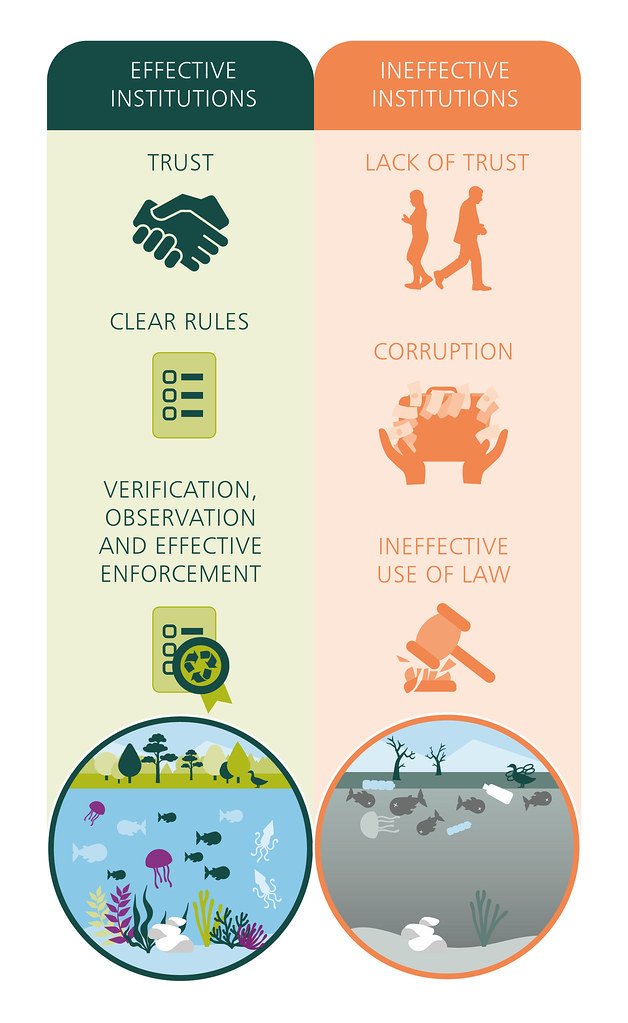In the vast realm of search engine optimization (SEO), where algorithms reign supreme, there exists a hidden menace that can unravel even the most carefully constructed websites. It lurks in the shadows, waiting to strike and sap away your hard-earned traffic, leaving your online presence in disarray. Ladies and gentlemen, let us shed light on the dreaded enemy: keyword cannibalization. But fear not, for buried within the chaos lies a path to restoring harmony to your SEO efforts. In this article, we will unravel the mysteries of keyword cannibalization and equip you with tactics to not only fend off this menace but also preserve the delicate balance that is essential for successful search engine rankings. Grab your SEO armor, for the battle against keyword cannibalization begins now!
Table of Contents
- Understanding Keyword Cannibalization
- The Negative Impacts of Keyword Cannibalization on SEO Performance
- Effective Strategies to Avoid Keyword Cannibalization
- Proven Techniques to Establish SEO Harmony and Preserve Keyword Relevance
- Q&A
- Key Takeaways

Understanding Keyword Cannibalization
Keyword cannibalization refers to a situation where multiple pages on a website are optimized for the same keyword. It may seem like a harmless mistake, but it can wreak havoc on your SEO efforts. Think of it as a battle between your own web pages, where each page is fighting for the top spot on search engine result pages (SERPs).
So why is keyword cannibalization a dreaded phenomenon? Well, for starters, it leads to confusion for search engines. When they encounter multiple pages targeting the same search query, they are unsure of which page is the most relevant and deserving of a higher ranking. Consequently, your pages end up competing against each other, diluting your website’s overall visibility and authority.
- Keyword cannibalization can negatively impact your website’s organic traffic and click-through rates (CTRs).
- It can hinder your ability to rank higher on SERPs, as search engines are unable to determine the most relevant page for a specific keyword.
- Multiple pages targeting the same keyword can confuse users and lead to a poor user experience.
But worry not, there are tactics you can employ to preserve SEO harmony and avoid falling victim to keyword cannibalization:
- Conduct a thorough keyword analysis: Before creating content, research keywords to identify which ones to focus on. Determine the most appropriate keyword for each page and ensure they’re not overlapping.
- Optimize for long-tail keywords: Instead of targeting broad keywords, consider long-tail keywords that are more specific and have lower competition. This helps you target a niche audience and reduce the likelihood of cannibalization.
- Create unique and valuable content: Each page should serve a unique purpose and provide valuable information to users. This makes it easier for search engines to understand and differentiate your pages.

The Negative Impacts of Keyword Cannibalization on SEO Performance
Keyword cannibalization, a phenomenon dreaded by SEO experts, can have a detrimental impact on the performance of your website. This occurs when multiple pages on your website target the same keyword or search term. Instead of boosting your SEO rankings, it can lead to confusion for search engines and ultimately harm your organic traffic and conversion rates.
One of the negative effects of keyword cannibalization is the dilution of your website’s authority. When multiple pages compete for the same keyword, search engines struggle to determine which page should rank higher. Consequently, the overall authority of your website is divided among these pages, resulting in a weaker SEO performance. Moreover, keyword cannibalization leads to internal competition within your site, making it difficult for search engines to understand the primary focus of your content and decide which page to display in search results. This can confuse both search engines and users, potentially causing a decrease in click-through rates and organic traffic.
- Keyword cannibalization hampers your website’s ability to rank higher in search engines.
- It can create internal competition, leading to reduced click-through rates and organic traffic.
- Search engines struggle to determine the most relevant page, resulting in diluted website authority.
- Confusion is created for both search engines and users, impacting conversion rates.
To preserve SEO harmony and combat keyword cannibalization, it is crucial to identify and rectify instances of this phenomenon. Conduct a comprehensive keyword analysis to identify any overlapping keywords and search terms. Once identified, consolidate and optimize the content by using a single page to target each keyword or search term. This ensures a clear focus and avoids confusion.
Additionally, utilizing internal linking strategies can aid in guiding search engines to the most relevant page for a particular keyword. By linking related pages to a designated cornerstone page, you can consolidate your website’s authority and provide a clear signal to search engines about the primary content. Implementing a well-structured site architecture and conducting regular SEO audits can also help in identifying and resolving keyword cannibalization issues, resulting in improved organic rankings and better user experience.

Effective Strategies to Avoid Keyword Cannibalization
One of the biggest challenges in the world of SEO is the dreaded keyword cannibalization. This phenomenon occurs when multiple pages on your website are targeting the same keyword, ultimately cannibalizing each other’s chances of ranking higher in search engine results. However, fear not! There are effective strategies you can employ to avoid this issue and preserve SEO harmony.
First and foremost, conducting thorough keyword research is crucial. By understanding and analyzing the keywords you’re targeting, you can identify any potential instances of cannibalization. Use tools like Google Keyword Planner or SEMrush to find related keywords and variations that can help you diversify your content. This way, you can create separate pages that focus on different aspects of the keyword, maximizing your chances of ranking for multiple relevant search queries.
Additionally, organizing your website’s structure and navigation can play a vital role in preventing keyword cannibalization. By clearly defining the hierarchy of your webpages, you can ensure that each page has a unique focus and purpose. Utilize header tags (H1, H2, etc.) to provide a clear hierarchy and structure to your content. Furthermore, interlinking your pages strategically can help search engines understand the relationship between your content and avoid confusion. Remember, search engines love well-organized and user-friendly websites, so make navigation a priority to prevent keyword cannibalization.
In conclusion, keyword cannibalization can be a SEO nightmare, but with the right strategies, you can preserve SEO harmony and boost your website’s performance. Conduct thorough keyword research, diversify your content, and organize your website’s structure strategically. By implementing these tactics, you can steer clear of cannibalizing your own search rankings and ensure each page has its own unique purpose in the realm of SEO.
Proven Techniques to Establish SEO Harmony and Preserve Keyword Relevance
One of the most dreaded obstacles in the world of SEO is keyword cannibalization. This perplexing phenomenon occurs when multiple pages on a website are competing for the same keyword or keyword phrase. The result? A dilution of SEO efforts and a drop in keyword relevance. But fear not, for we have gathered a range of , ensuring your website remains at the top of search engine rankings.
First and foremost, conducting thorough keyword research is crucial. Identify the primary and secondary keywords that align with your website’s content and goals. By having a clear understanding of the keywords you want to target, you can strategically assign them to specific pages, preventing any clashes or overlap. Be meticulous in organizing and mapping out your keywords to maintain a harmonious SEO structure.
Another effective technique to combat keyword cannibalization is to optimize for long-tail keywords. Unlike generic keywords, long-tail keywords are more specific and have less competition. By targeting these phrases, you can narrow down your focus and tailor your content accordingly, enhancing keyword relevance for each page. Additionally, long-tail keywords tend to attract highly motivated and qualified traffic, resulting in higher conversion rates. Remember, the key lies in striking a balance between broad and specific keywords, allowing you to rank higher for both types. So, keep calm and optimize for long-tail keywords to preserve SEO harmony on your website.
Q&A
Q: What is keyword cannibalization and why should website owners be concerned about it?
A: Keyword cannibalization is a phenomenon that occurs when multiple pages on a website compete for the same search keyword or phrase. This can have a negative impact on a website’s SEO as search engines struggle to determine which page should rank higher. Website owners should be concerned about keyword cannibalization as it can lead to a decline in organic traffic and visibility.
Q: How does keyword cannibalization affect SEO?
A: Keyword cannibalization affects SEO by causing confusion for search engines, leading to a lower ranking of the affected pages. When multiple pages target the same keyword, search engines cannot determine which page is the most relevant and valuable, thus diluting the overall SEO effectiveness of the website.
Q: What are some common signs of keyword cannibalization?
A: Some common signs of keyword cannibalization include a decline in organic traffic, decreased visibility for targeted keywords, pages ranking lower in search engine results, and competing pages outranking each other inconsistently. These signs indicate that a website may be experiencing keyword cannibalization issues.
Q: What strategies can website owners employ to prevent or remedy keyword cannibalization?
A: Website owners can employ several strategies to prevent or remedy keyword cannibalization. These include conducting robust keyword research, auditing the website’s content to identify cannibalization issues, consolidating similar pages into one comprehensive page, redirecting redundant pages, optimizing content around unique and relevant keywords, and improving internal linking structure.
Q: Can keyword cannibalization be beneficial in any way?
A: While keyword cannibalization is generally detrimental to SEO, there can be some rare cases where it can be beneficial. For example, if a website intentionally creates multiple pages targeting the same keyword to dominate the search results for that particular keyword, it may temporarily benefit from increased visibility. However, this approach is not recommended as it often leads to confusion for search engines and users.
Q: How frequently should website owners monitor for keyword cannibalization?
A: It is advisable for website owners to regularly monitor for keyword cannibalization, especially when introducing new content or making significant changes to their website. A periodic assessment every few months or whenever changes are implemented will help identify and address cannibalization issues in a timely manner.
Q: Are there any tools available to help identify keyword cannibalization?
A: Yes, there are various tools available that can assist in identifying keyword cannibalization issues. Tools such as SEMrush, Moz, Ahrefs, and Google Search Console can provide insights into keyword rankings, traffic, and potential cannibalization problems. Additionally, conducting manual content audits and analyzing website analytics can also help identify areas of concern.
Q: Can keyword cannibalization impact the user experience on a website?
A: Yes, keyword cannibalization can impact the user experience on a website. When multiple pages are competing for the same keyword, users may find it difficult to navigate and find the most relevant information. This can lead to confusion, frustration, and ultimately a negative experience on the website.
Q: Is there a surefire way to prevent keyword cannibalization?
A: While there is no foolproof way to prevent keyword cannibalization entirely, following best practices such as conducting thorough keyword research, properly structuring a website, and regularly auditing content can significantly reduce the likelihood of cannibalization issues. By being proactive and implementing effective strategies, website owners can maintain SEO harmony and minimize the impact of keyword cannibalization.
Key Takeaways
In a world where the digital landscape is constantly evolving, the importance of maintaining SEO harmony remains a paramount challenge for every digital marketer. As we have embarked on this journey through the concept of keyword cannibalization, we have unearthed the true power it holds in destroying the very foundation of a well-optimized website.
But fear not, for within the depths of this tempest lies a silver lining. Equipped with the knowledge and tactics to preserve SEO harmony, digital marketers can navigate the treacherous waters of keyword cannibalization, emerging stronger and victorious.
By embracing a strategic approach and wielding the sword of discipline, one can vanquish the threat of keyword cannibalization. Effective keyword research and strategic mapping of keywords to specific pages will ensure that each page possesses a unique and purposeful identity, eliminating any confusion for search engines and users alike.
However, one must not underestimate the power of internal linking, as it is the beacon that guides both search engine crawlers and users within the labyrinth of your website. By carefully crafting internal links and implementing a cohesive structure, one can guide both search engines and users towards the desired path, preserving the sanctity of each page.
Furthermore, the power of content optimization cannot be underestimated. By crafting and curating exceptional content that resonates with your target audience, you can craft an arsenal that not only prevents keyword cannibalization but also establishes your website as an authoritative force in the digital realm.
As we bid farewell to this exploration of keyword cannibalization, let us not forget the lessons learned along the way. SEO harmony is not merely an abstract concept but rather a delicate equilibrium that requires constant vigilance and adaptation. Armed with the tactics to preserve this harmony, digital marketers can forge a path towards success, leaving keyword cannibalization in the annals of history.
So go forth, brave digital warriors, armed with knowledge and armed with tactics. Unveil the dreaded keyword cannibalization and restore harmony to your SEO kingdom. For within the chaos lies the opportunity for greatness, waiting to be seized by those willing to tread the path less traveled. Together, we shall preserve the beauty and integrity of optimized websites, ensuring a future where SEO harmony prevails.
May your keywords be unique, your pages distinct, and your website a fortress untouchable by the jaws of cannibalization. Farewell, dear readers, until we embark on our next adventure to unravel the mysteries of the ever-evolving digital world.

